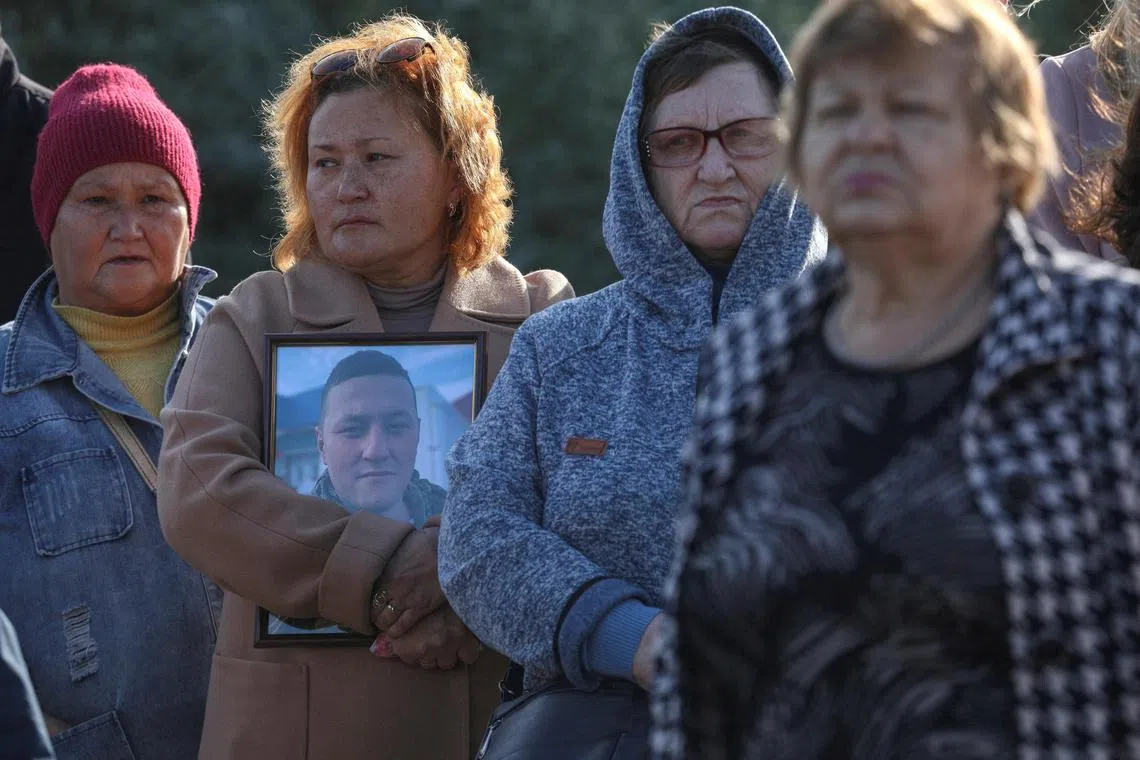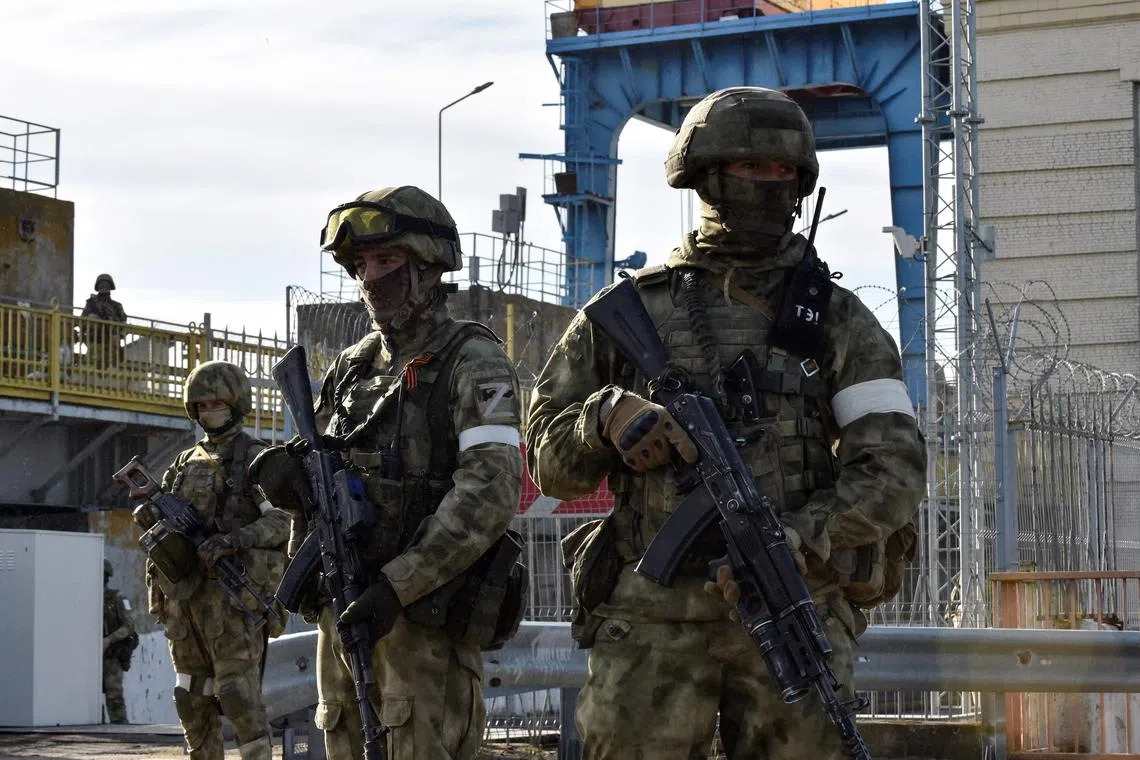Kremlin faces rising ire from wives, mothers of troops mobilised for war in Ukraine
Sign up now: Get ST's newsletters delivered to your inbox

People attend a tree planting ceremony in memory of fallen Russian service members in Sevastopol, Crimea, on Nov 20, 2022.
PHOTO: REUTERS
Follow topic:
MOSCOW – Desperate to rescue their sons and husbands from the front lines in Ukraine, Russian women are putting pressure on the Kremlin, in the latest sign of the spreading discontent caused by the war.
The scattered efforts by wives and mothers took off after Russian President Vladimir Putin ordered 300,000 reservists to be called up on Sept 21,
As the war grinds into its ninth month, Mr Putin’s efforts to shield his population from the costs of the fighting are wearing thin in spots, and the Kremlin is racing to reduce the impact where it can. The authorities are promising cash and other benefits for families of those who are called up, pledging to make sure they are properly equipped and taken care of.
Protests against sending mobilised relatives to the front have taken place in at least 15 regions, with the biggest near the border with Ukraine, according to data collected by Verstka, an independent media outlet that is one of the few covering the movement.
Families’ demands typically are not political, focusing on ensuring their menfolk get adequate training and equipment, and are taken care of at the front.
And they have received some high-level attention.
Mr Putin admonished officials earlier in November to make sure that concerns are addressed, vowing to “talk to people myself to get some feedback” on the situation.
The governors of some regions near the Ukraine border have promised to help, though activists said results have been limited so far. Other officials rejected the appeals flat out, saying the soldiers at the front are “alive and well”.
“These people don’t want to stop the war, they want to improve soldiers’ conditions,” said political scientist Ekaterina Schulmann, a fellow at the Robert Bosch Academy in Berlin.
“But for that reason, it’s harder for the authorities to ignore them or to frame those protests as extremism or foreign influence.”
Opinion polls show that support for the war has slipped since the highs seen in its first months, before Ukraine’s counter-offensive forced Russian troops to give up vast swathes of territory. Anxiety spiked over the announcement of the mobilisation, which triggered an exodus of as many as half a million Russians from the country.
Soldiers’ mothers have been a political force in Russia for decades, as activists sought to rescue draftee sons from harsh treatment. The movement strengthened in the 1990s, seeking to bring back soldiers sent to fight in the Chechnya region. This time, a group claiming to represent the families said it has supporters in 89 cities.
State TV has not given much attention to the families’ protests, which have been widely discussed on social media. Videos of angry wives heading near the war zone to rescue their relatives have been circulated widely on social media, though none has been confirmed officially.

Protests against sending mobilised relatives to military action in Ukraine have taken place in at least 15 regions.
PHOTO: AFP
In a video appeal posted by Verstka on Nov 9, the wife of one of those mobilised said his company commander revealed that only about 30 out of 200 men had made it to safety after they came under fire in Luhansk, in eastern Ukraine.
In another video posted a day later, a group of 20 women on the Russian border with Ukraine vowed to go to the front line to recover their husbands, sons and brothers.
“If they don’t come out and help us, we’ll go, including a pregnant girl,” one of them said, adding that their relatives were without body armour or helmets and dragging wounded comrades with them.
Amid the official expressions of sympathy, the authorities are cracking down. One group said the authorities threatened one of its activists, a schoolteacher, with arrest if she did not keep silent. Draftees are also being warned that their family members should stop protesting. BLOOMBERG

